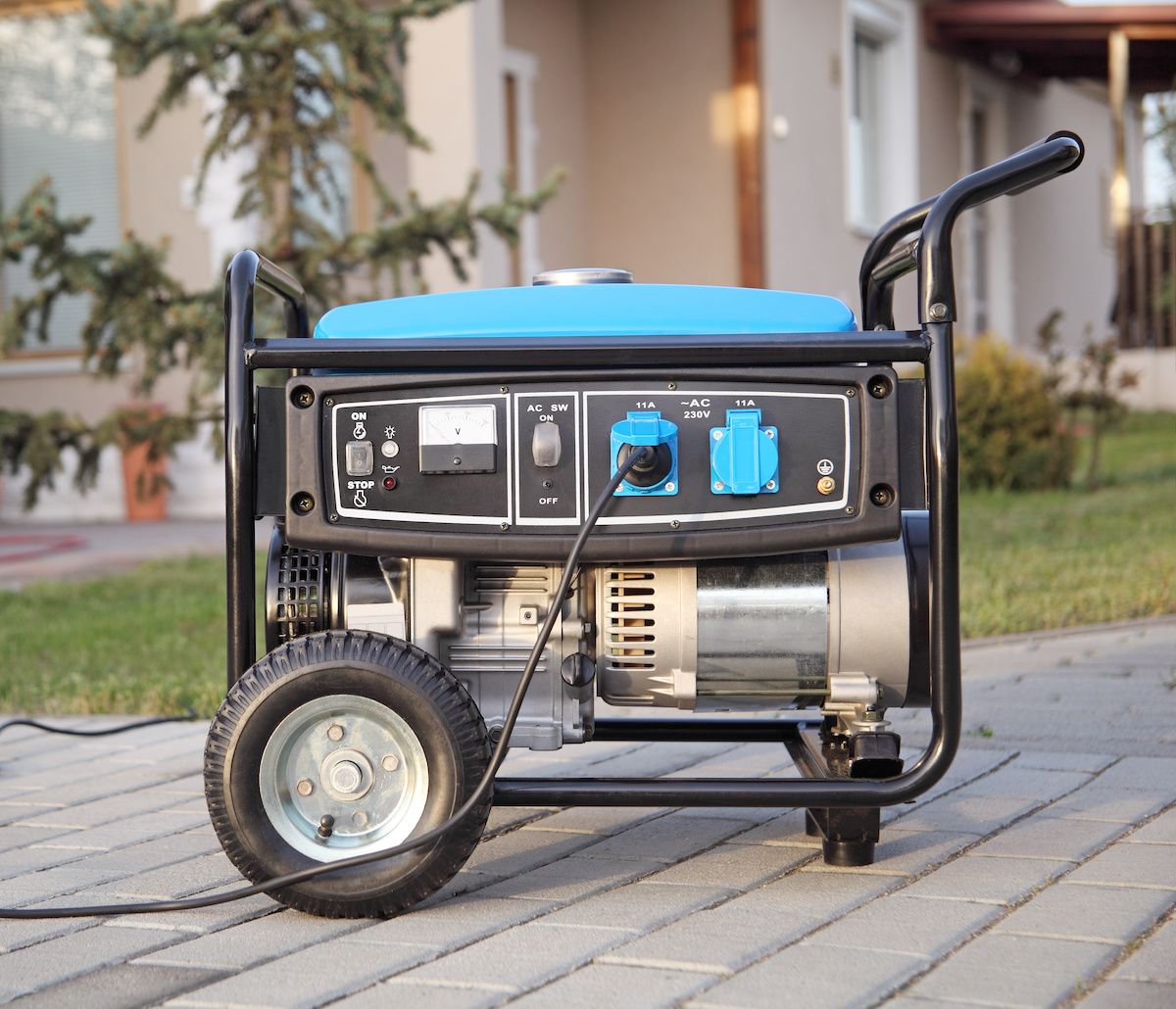
Have you ever wondered what to do if the power went out during a windstorm? High winds can cause sudden and widespread power outages, leaving homes in the dark and disrupting daily life. This is especially true during the autumn season in the Seattle region. But knowing how to handle these situations can help contribute to your comfort as well as safety. Let’s explore some practical power outage tips focused on electrical safety and the effective use of generators during high winds.
Stay Safe Around Downed Power Lines
What should you do if you see a downed power line during or after a windstorm?
High winds can topple trees, snap branches, and bring down power lines. If you encounter a downed power line, stay away from it and immediately report it to the power company. Touching or even getting too close to a downed line can be extremely dangerous, as it may still carry an electric current. Here are key points to remember:
Keep a Safe Distance
Maintain at least a 30-foot distance from any downed power lines. The ground surrounding the line can be electrified, so it’s crucial to avoid the area entirely.
Meanwhile, keep pets and children away as well. If you’re in a vehicle and a power line falls on it, stay inside and call for help. Only exit the vehicle if there’s an immediate danger, such as a fire, and jump out with both feet together to avoid creating a path for the electricity.
Report Immediately
Call your local power company or emergency services as soon as you spot a downed power line. Reporting promptly helps utility workers respond quickly, reducing the risk of accidents and restoring power faster. Your timely report could prevent a dangerous situation from escalating!
Use Generators Wisely and Safely
How can you use a generator without risking your safety?
Generators can be a lifesaver during power outages, especially when high winds have knocked out electricity for an extended period. However, improper use of a generator can lead to severe hazards. This includes carbon monoxide poisoning, fires, and electrocution.
Consider these power outage tips when it comes to using generators:
Place the Generator Outdoors
Always place your generator outdoors, away from windows, doors, and vents. Generators produce carbon monoxide, an odorless, colorless gas that can be fatal if inhaled in enclosed spaces. Position the generator at least 20 feet from your home to prevent exhaust from entering your living area.
Never run a generator in a garage, even if the door is open.
Use the Right Cords and Connections
When connecting appliances to your generator, use heavy-duty, outdoor-rated extension cords that match the generator’s capacity. These cords should be free of cuts and tears and have three prongs to ensure grounding.
Meanwhile, never plug a generator directly into a wall outlet. This can cause backfeeding, which poses a severe risk to utility workers and can damage your home’s electrical system.
Turn Off the Generator Properly
Before refueling your generator, always turn it off and let it cool down. Refueling a hot generator can cause a fire or explosion.
Also, remember to disconnect all appliances before shutting down the generator. This precaution prevents damage to your electronics from power surges when the generator is restarted.

Protect Your Electronics from Power Surges
Have you considered how to safeguard your electronics during a power outage?
Power surges can happen when electricity is restored after an outage, especially after a high wind event. These surges can damage sensitive electronics, leading to costly repairs or replacements.
To protect your devices, follow these tips:
Unplug Electronics
As soon as the power goes out, unplug your electronics, including computers, televisions, and other valuable appliances. Unplugging them prevents damage from sudden power surges when electricity is restored. If you’re using a generator, only plug in essential devices and avoid overloading the system.
Use Surge Protectors
Invest in high-quality surge protectors to shield your electronics from potential damage. Surge protectors can absorb excess electricity from a surge, diverting it away from your devices.
Install a New Electrical Panel
For even better protection, consider whole-house surge protectors installed at your electrical panel. These offer an additional layer of security against large surges caused by storms or utility issues. Dadz can install a new electrical panel in your home safety and efficiently!
Plan Ahead for Extended Outages
What steps can you take to prepare for long-term power outages?
High winds can cause power outages that last for days, or even longer. Being prepared for an extended outage ensures that you and your family remain safe and comfortable. Here’s how to plan ahead:
Stock Up on Essentials
Before a storm hits, make sure you have enough food, water, and medical supplies to last several days. Non-perishable foods, bottled water, and a first aid kit should be part of your emergency supplies. Don’t forget to have a manual can opener, as electric ones won’t work during an outage.
Keep Flashlights and Batteries Handy
Flashlights are safer than candles during a power outage, especially when high winds are involved. Make sure you have plenty of fresh batteries on hand, and consider investing in battery-operated lanterns. Place flashlights in easily accessible locations around your home.
Stay Informed
A battery-powered or hand-crank radio is essential for receiving weather updates and emergency information during an extended outage. Knowing what’s happening in your area helps you make informed decisions about your safety and can guide you on when to use your generator or conserve resources.
Power Outage Tips: Check and Maintain Your Generator Regularly
Have you looked into routine maintenance on your generator lately?
A well-maintained generator is key to surviving a power outage without unnecessary stress. Regular maintenance ensures that your generator will function properly when you need it most. Follow these tips for keeping your generator in top condition:
Conduct Routine Inspections
Regularly inspect your generator for signs of wear and tear, such as frayed wires or loose connections. Check the oil and fuel levels, and replace any fluids as needed.
If you notice any issues, call Dadz before the high-wind season begins!
Test the Generator Periodically
Even if you haven’t had to use your generator recently, it’s important to test it periodically to ensure it starts and runs smoothly. Run the generator for a few minutes every month to keep the engine in good condition and to check for any potential problems.
Replace Worn Parts
Generator parts can wear out over time, especially if the generator is used frequently. Replace spark plugs, filters, and other components as recommended by the manufacturer. Keeping your generator in good working order reduces the risk of failure during a power outage.
Worried About Power Outages from High Winds? Dadz Can Help!
These power outage tips can help you ride out wind storms until power is restored. But if you’re worried about problems that might be stemming from your electrical panel, please call us. We can also help you get your generator in working order to assist with power outages. Call us for a helping hand from a licensed Seattle electrician!